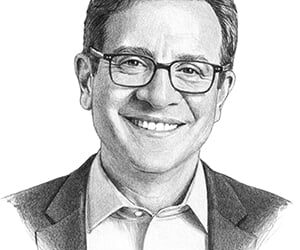Sweden: a socialist paradise overflowing with billionaires

Unlock the Editor’s Digest for free
Roula Khalaf, Editor of the FT, selects her favourite stories in this weekly newsletter.
The writer is chair of Rockefeller International. His latest book is ‘What Went Wrong With Capitalism’
Every year I run an analysis of the Forbes rich lists, to spot countries where billionaire wealth is surging as a share of GDP, concentrating in family empires or pooling in “bad” industries better known for corruption than productivity. My working assumption is that the most extreme outliers face the highest risk of anti-capitalist revolt.
This year the warning signs point above all to Sweden. Though still seen by many progressives as a socialist paradise, Sweden saw billionaire wealth rise by 4 points to 31 per cent of GDP — the biggest increase, and to the highest level, of the 20 major economies in my analysis.
Sweden has 45 billionaires, about 1.5 times more per capita than the US, which is often said to be enjoying a new gilded age. The richest American ever was John D Rockefeller in around 1910, when his fortune surpassed 1.5 per cent of GDP. No American is close to that mark today. The land of latter-day Rockefellers is Sweden, with seven magnates whose wealth as a share of their nation’s GDP exceeds that of Rockefeller at his peak.
A functioning economy will generate a balanced billionaire class, with more “good” wealth from industries like tech or manufacturing than “bad” wealth from sectors such as real estate or commodities. Not that real estate or commodities are inherently bad. But they contribute less to productivity and are less likely to be held in high popular esteem than, say, cars or software.
In Sweden, the “good” billionaires are outnumbered two to one by the “bad” ones. Despite the country’s emergence as an incubator of tech entrepreneurs, only three of them make the Forbes list. At just 12 per cent, the “good” share of billionaire wealth is third lowest among my top 10 developed countries.
Sweden began to encourage wealth creation after the failure of its post-second world war experiment in unrestrained welfare statism. Heavy taxes were driving celebrities and industrialists out of the country, costing Sweden far more in lost wealth than it raised in revenue. The ensuing financial crises of the early 1990s forced Sweden to rethink its commitment to socialism.
Sweden did not end free education and healthcare, paid for with high income taxes. But it did downsize the welfare state, while abolishing or lowering taxes on wealth, inheritance, corporations and real estate.
By the mid-2000s, the super-rich were no longer fleeing. Now they dominate. Nearly 70 per cent of Sweden’s billionaire wealth comes from inheritance, third highest on my list after France and Germany.
Sweden is not the only big welfare state to see a billionaire boom in recent years — France has too — but each has special imbalances. Sweden’s include distorted taxes and easy money. The country taxes capital much less heavily than salaries, and sometimes taxes capital regressively. A yearly homeowner fee is capped under $1,000 — a big boon for the rich. Sweden has also held interest rates well below the European average, and low rates tend to inflate asset prices, while making it easy for the rich to borrow money to make more of it.
In recent elections, political anger has been focused on immigrants and crime, not inequality. Many leading business families are better known for giving away than flaunting their wealth, which helps explain why they’ve avoided political attacks. But Sweden’s composite ranking on my three billionaire metrics is now the worst of the 20 countries I track, and that doesn’t bode well.
I started running these analyses in 2010, when the booming fortunes of “bad” billionaires in India led to a backlash against wealth creation that was enough to hold back business activity in general. Over the next decade, dismal results on the billionaire metrics would presage revolts around the world, including in Chile before mass riots against social inequality erupted in 2019, and in France before the outbreak of “tax the rich” rallies in 2023. The Paris protests have targeted top billionaires by name.
These class revolts can ignite like bushfires, shifting with the political winds. As Swedish economist Johan Norberg has described his home country, this is a nation of “extremes,” prone to ignoring festering problems “until they become too big to deny and everybody changes their minds at the same time”. Every healthy economy needs to encourage wealth creation, particularly in the most productive sectors, but balance is essential. Too much wealth at the top, concentrated in the hands of too many billionaires of the wrong type, puts a country at risk of political backlashes or policy reversals. Sweden is fertile ground for this kind of unrest now.







